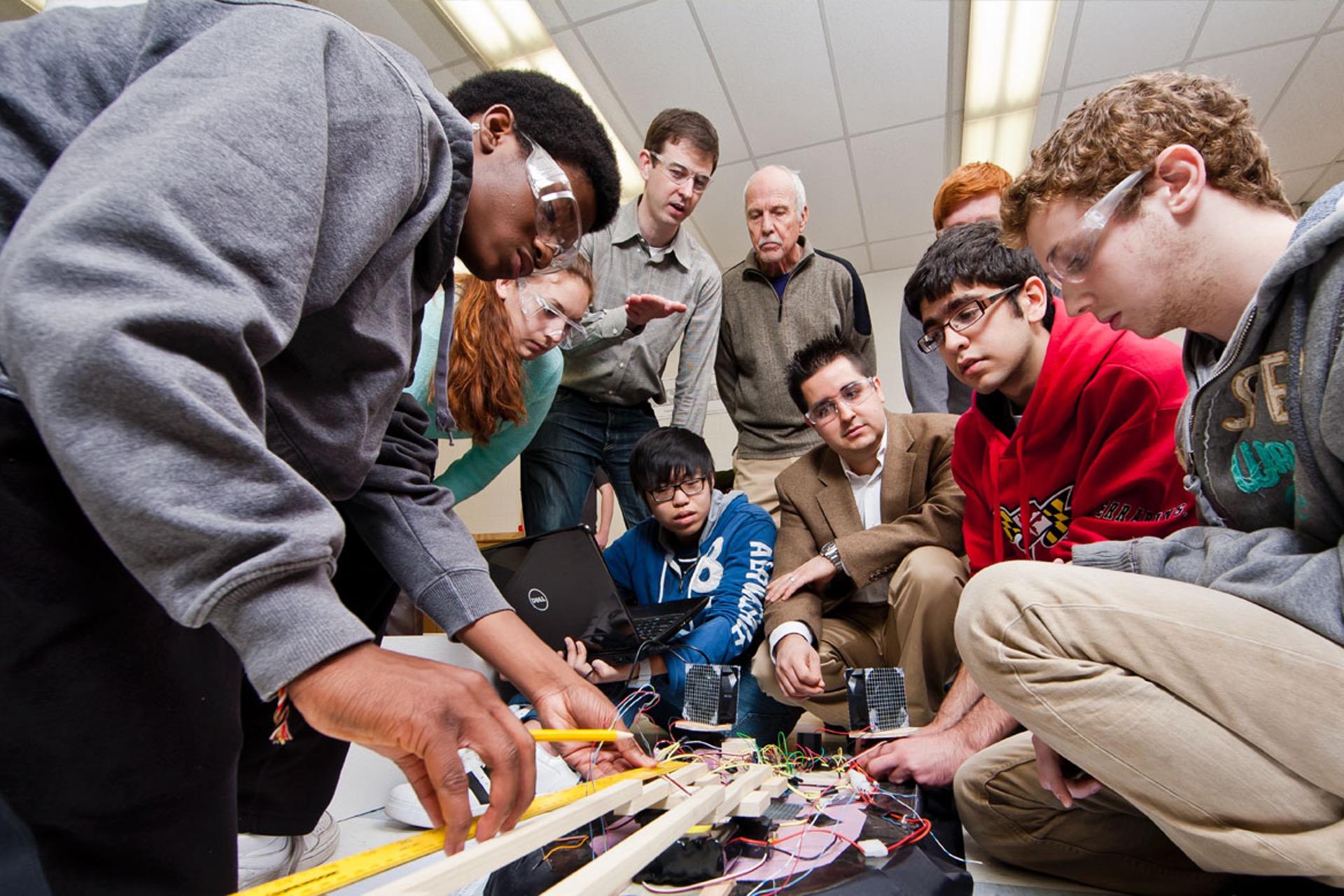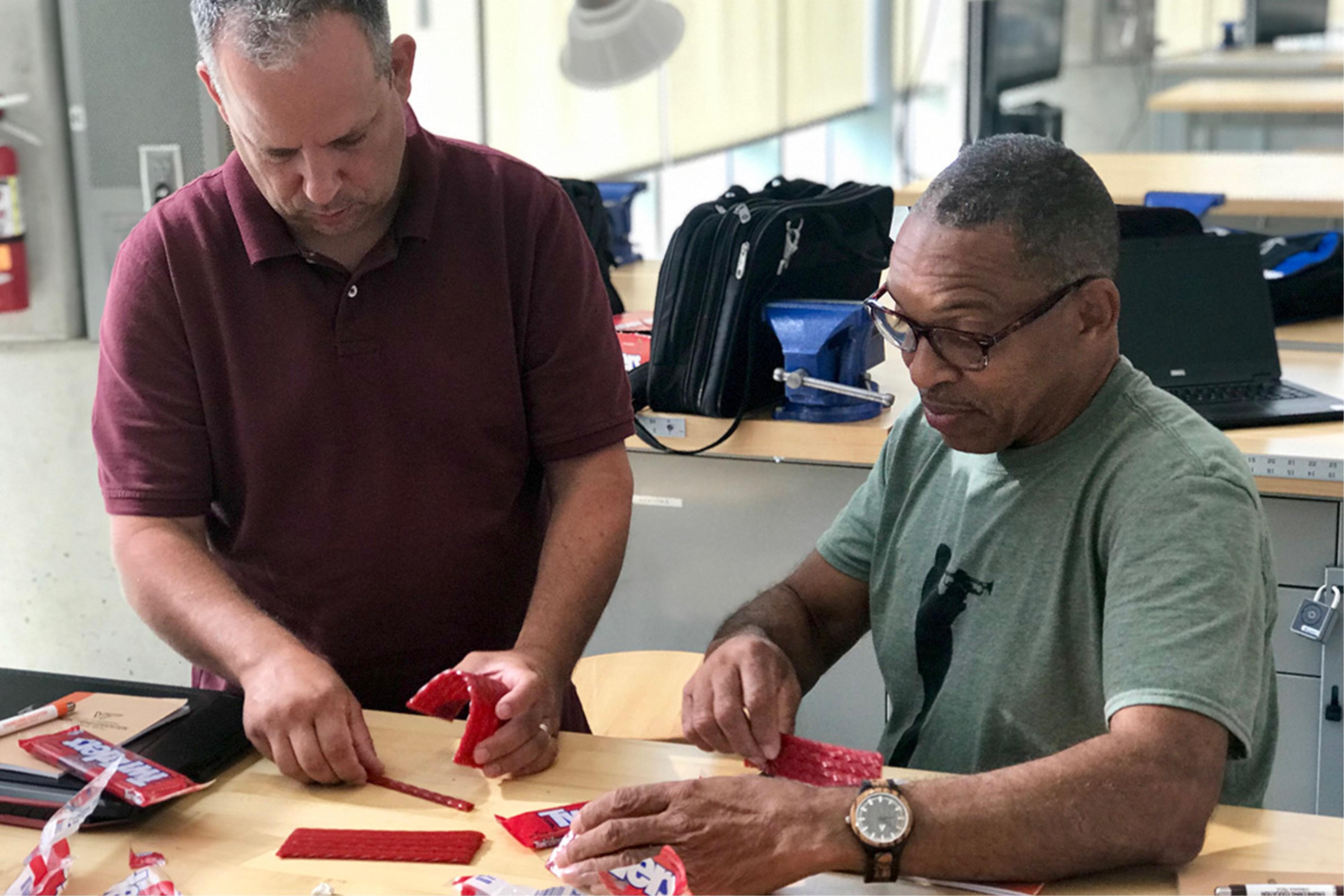For Administrators
How will e4usa benefit your school?

Promoting Equity
- The e4usa curriculum includes opportunities for teacher personalization and autonomy focused on student decision-making.
- e4usa aims to expand engineering participation through a curriculum requiring only Algebra I.
- Selected e4usa teachers will receive stipends and funding for classroom materials.
- Enrolling in e4usa course boosts students' future engineering interest, fostering more STEM-ready graduates who contribute to local, state, and national progress.
- More students will graduate with college credit that can be accepted at institutions of higher nationwide.
Empowering People
- e4usa demystifies engineering, empowering teachers of all backgrounds to gain self-efficacy, self-confidence, and skills to teach and assess students’ engineering-based competencies.
- By participating in e4usa, your staff will be positioned to take a leadership role in directly contributing to a national curriculum that will impact hundreds, if not thousands, of students.
- Through e4usa, your school can partner with universities like The University of Maryland, Virginia Tech University, and Arizona State University, elevating its national profile as an emerging leader in engineering K-12 education research.
Expanding Opportunities

- e4usa courses have the potential to become inaugural pathways for high school students and their teachers to learn, practice and demonstrate engineering and design based competencies.
- Students who complete an e4usa course could earn placement and/or credit for introductory college courses, such as: engineering; or an elective; or a substitute required course in the general education sequence.
This was a huge benefit as the students were able to apply feedback and learned how important it is to keep in mind the project stakeholders. The other benefit is that most of the projects allowed the students to make something that would actually be used so it wasn’t just a hypothetical problem.
Minimum Expectations of School Sites, Teachers, and Students
The e4usa Curriculum has been designed with certain expectations for school sites, teachers, and students. These expectations specify the minimum acceptable levels of commitment to ensure a positive pilot course experience.
- The course must be offered as a full-year course.
- The class should have a minimum of 100 hours of instruction before the summative course examination, which is scheduled during the second week of May.
- We assume 200 minutes of instructional time per week for a minimum of 30 weeks before the mid-May summative examination.
- The course schedule should allow sufficient time for students to work on engineering design projects between the start and end of the class meeting times.
- Adequate tools and facilities must be provided to enable students to create prototypes of their design projects.
- Teachers should be given adequate time during the school day to properly prepare for and generate curricular materials in response to student design project concepts.
- School sites should support each e4usa teacher's attendance at a Summer Institute and participation in virtual or on-site professional development sessions throughout the academic year.
- Agree to pay $3,000 to engage in Online Summer Professional Development with yearlong online professional learning, or $3,500 for In-Person Summer Professional Development with yearlong online professional learning; visit the Professional Learning page for more details.
- Teachers should be comfortable with uncertainty and be willing to guide students as they attempt projects for which a single solution does not exist.
- Teachers should be comfortable teaching basic mathematics concepts during the course.
- Teachers should be willing to learn alongside students to support their design project efforts and generate necessary curricular resources in response to student design project concepts.
- Teachers should be willing to engage in ongoing professional development activities, such as online learning communities.
- Students will have successfully completed algebra I.
Students will work in teams and will contribute equitably to the design, construction and testing of an engineered solution.